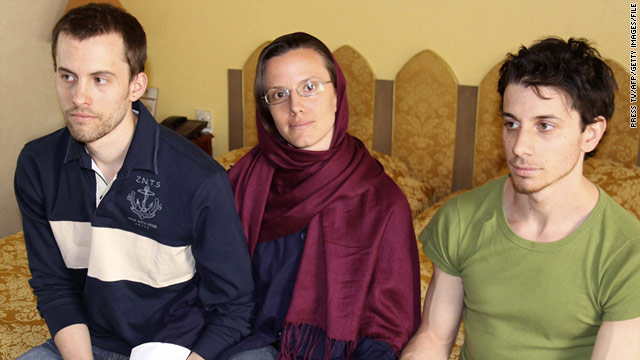By Eric C. Sigmund
Impunity Watch Reporter, Middle East
MANAMA, Bahrain – Protests in the Middle East continue to spread and escalate as angry citizens test the resolve of their governments in Bahrain and Iran. Energized by the ousting of Hosni Mubarak in Egypt, thousands have flooded the streets in recent days to demand more rights and freedom from government tyranny. Now the situation has turned deadly. Protests in both countries have met fierce resistance by police forces ordered to break up opposition rallies by government officials.
At least 2 people were killed and 50 injured Wednesday in Bahrain as security forces reportedly lobbed tear gas into crowds and attacked groups of protestors in Manama’s Pearl Square. Witnesses also reported that the forces shot rubber bullets at those fleeing the square. Pearl Square has been dubbed the new Tahrir Square and has been the focal point of the growing opposition in the Middle East over the last few days. The protests, which started Monday, proceeded peacefully and thousands remained in the square throughout the nights, sleeping in tents. Thursday morning, the square is nearly empty, the stronghold of the opposition abandoned.
Sheikh Ali Salman, general secretary of the Wefaq party, the main Shi’ite opposition party in the country, stated “We’re not looking for a religious state. We’re looking for a civilian democracy in which people are the source of power, and to do that we need a new constitution.” King Hamad Bin Isa al-Khalifa presented a new constitution a decade ago which guaranteed more political rights to citizens but Salman and others argue that the leadership has not gone far enough and should embrace democracy. The Wefaq party has walked out of parliament.
Clashes also erupted in Iran Wednesday at a funeral being held for a student shot during an opposition rally on Monday. The protests in Iran, which are continuing into their second week, are the longest since those held after the reelection of President Ahmadinejad in 2009. The government however, has not been timid in condemning the opposition. Police forces have been given carte blanch in disrupting protests and dozens of people have been arrested. While the protests in Iran are a clear indication of overwhelming dissatisfaction with the government, analysts fear that the movement will do little to shake up the ranks of government. Only time will tell what may be the result of this latest anti-government moment in Iran but the leadership in Tehran has shown that it is willing to take every step to preserve its power.
A “Day of Rage” is also scheduled to begin in Libya on Thursday to protest the dictator Muammar Gaddafi. Word of the protests spread rapidly through the social media networks Facebook and Twitter. Human rights groups have already warned about the likelihood of a security crackdown to quell and analysts are doubtful that the events which transpired in Egypt will occur again in Libya. Many governments throughout the region feeling pressure from their citizenry have already given concessions and promised further reforms to calm dissent. Gaddafi however, has been defiant and protestors have already faced violent resistance as several hundred people clashed with police forces on Tuesday. Pro-Gaddafi groups have also turned out in large numbers to assist police forces suppressing the opposition.
For a country-by-country breakdown of the situation in the Middle East and North Africa click here.
For more information, please see:
Reuters Africa – Libyan Online Protesters Prepare for “Day of Rage” – Feb. 17, 2011
Agence France Presse – Bahrain Forces Break up Protesters’ Camp: Witnesses – Feb. 16, 2011
BBC – Middle East Protests: Country by Country – Feb. 16, 2011
DiscountVoucers.co.uk – Ahmadinejad Claims Iran Protests are Futile – Feb. 16, 2011
Reuters – Supporters, Opponents of Iran Govt Clash at Funeral – Feb. 16, 2011
Reuters – Two Dead as Bahrain Police Break Up Protests Camp – Feb. 16, 2011


